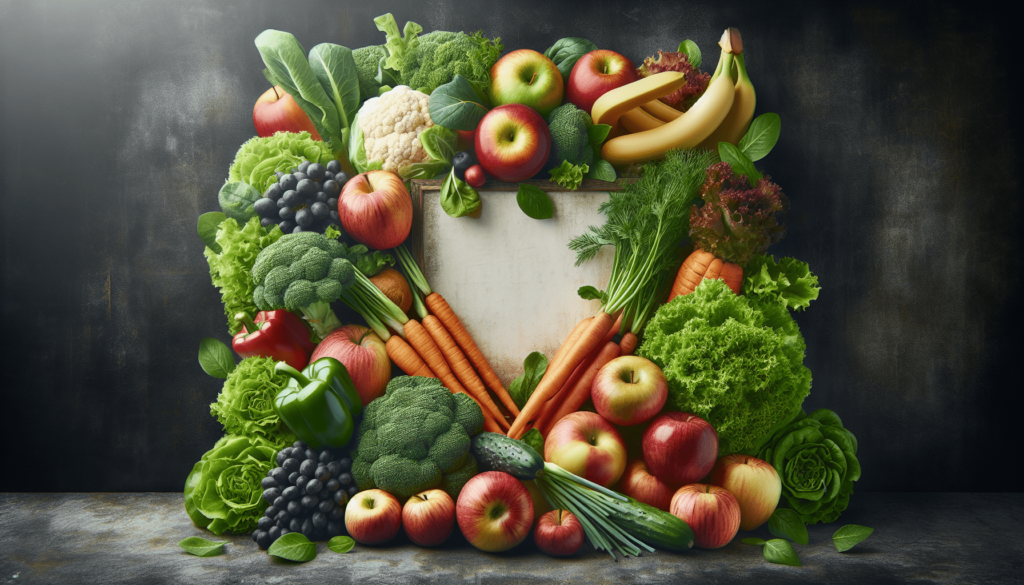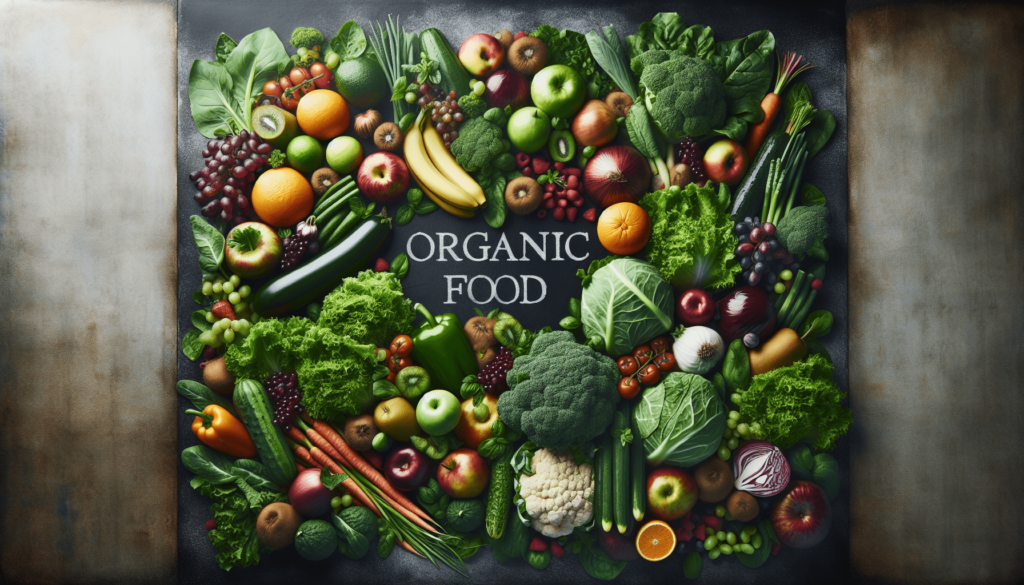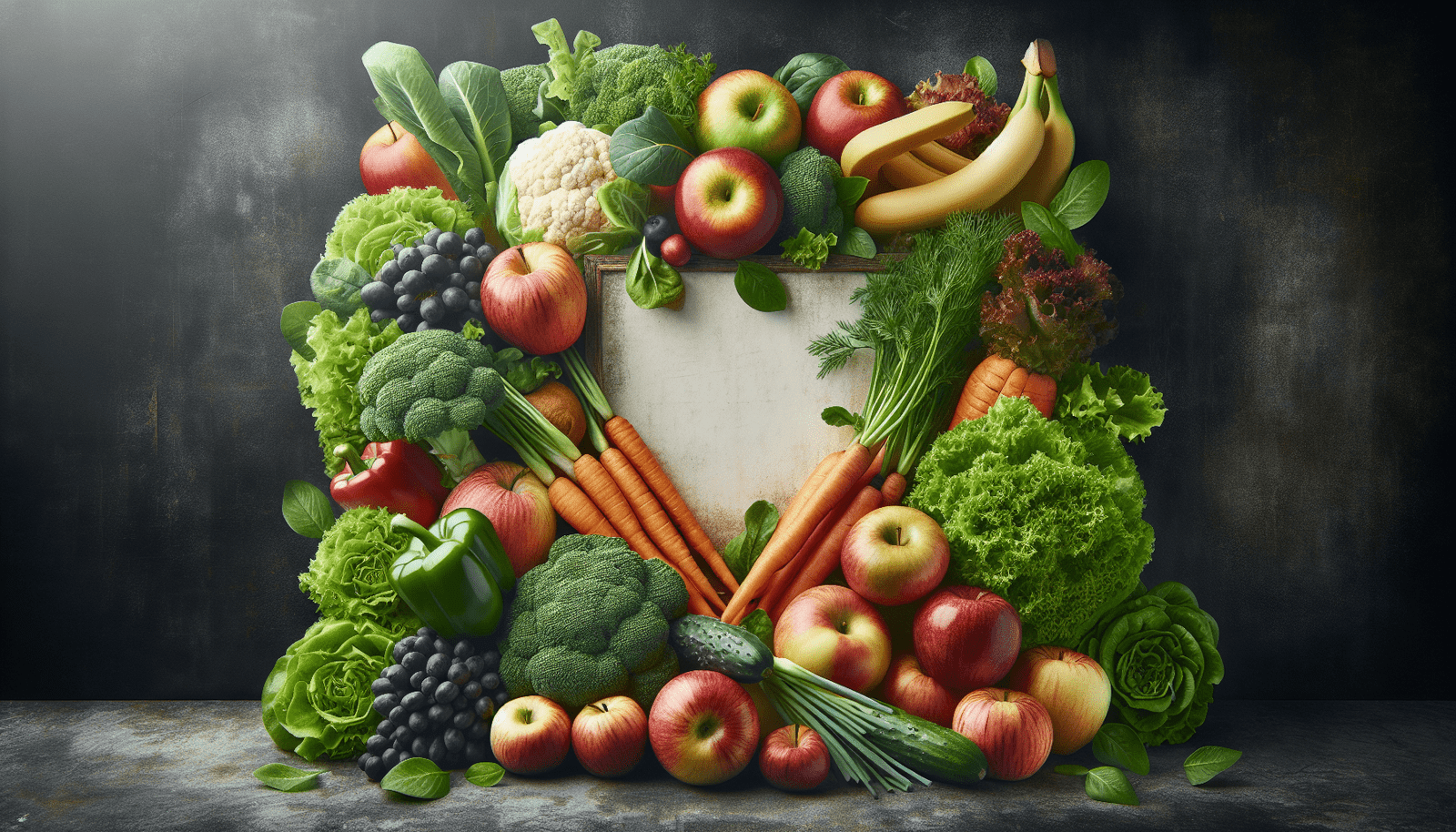Welcome to the world of organic living! In this article, you will discover the essential information you need to know about joining the organic movement. From the benefits of organic products to tips on making the switch, you will be equipped with the knowledge to embrace a healthier and more sustainable lifestyle. So sit back, relax, and get ready to embark on a journey towards a greener and cleaner way of living. Have you ever considered joining the organic movement, but felt unsure about where to start? With so much information out there, it can be overwhelming to navigate the world of organic living. However, taking the first step towards a more sustainable and environmentally friendly lifestyle can be easier than you think. In this article, we will guide you through everything you need to know about joining the organic movement. From understanding what organic means to tips for incorporating organic products into your daily life, we’ve got you covered. Let’s dive in!

Understanding Organic Farming
Organic farming is a method of agriculture that relies on natural processes to grow crops and raise livestock. This means avoiding the use of synthetic pesticides, fertilizers, genetically modified organisms (GMOs), and hormones. Instead, organic farmers focus on building healthy soil, promoting biodiversity, and using sustainable farming practices.
When you choose organic products, you are supporting farmers who prioritize environmental conservation, animal welfare, and human health. By opting for organic foods, you are also reducing your exposure to harmful chemicals and additives commonly found in conventionally grown produce.
Benefits of Organic Farming
Organic farming offers numerous benefits for the environment, consumers, and farmers alike. Some of the key advantages of organic agriculture include:
-
Environmental Sustainability: Organic farming practices help protect soil health, conserve water, and promote biodiversity. By avoiding synthetic inputs, organic farmers reduce their impact on the environment and contribute to a more sustainable food system.
-
Healthier Food: Organic products are free from synthetic pesticides, herbicides, and fertilizers, making them a safer and healthier option for consumers. Studies have shown that organic foods are higher in certain nutrients and antioxidants compared to conventionally grown produce.
-
Support for Small-Scale Farmers: Choosing organic products supports small-scale farmers who often face challenges in the mainstream agricultural industry. By purchasing organic foods, you are helping to create a more equitable and resilient food system.
How to Identify Organic Products
In order to make informed choices about the food you consume, it’s important to know how to identify organic products. In many countries, organic foods are certified by regulatory bodies that set standards for organic farming practices. Look for the following labels and certifications when shopping for organic products:
USDA Organic
In the United States, the United States Department of Agriculture (USDA) oversees the Organic Certification Program. Products that are certified organic by the USDA bear the USDA Organic seal, which indicates that the product meets organic standards set by the USDA. Look for this seal on produce, dairy, meat, and packaged goods to ensure you are purchasing certified organic products.
EU Organic Logo
In the European Union, organic products are certified according to the standards set by the European Commission. The EU Organic Logo is used to identify organic products that comply with EU regulations for organic farming. Look for this logo on food products in the EU to verify their organic status.
Soil Association Organic Standard
In the United Kingdom, the Soil Association is a leading organization that certifies organic products. Look for the Soil Association Organic Standard logo on food items and beauty products to ensure they meet the Soil Association’s rigorous organic standards.
Canada Organic Logo
In Canada, organic products are certified by the Canadian Food Inspection Agency (CFIA). The Canada Organic Logo is used to identify products that have been certified organic by the CFIA. Look for this logo on food products to confirm their organic status.
IFOAM Organic Certification
The International Federation of Organic Agriculture Movements (IFOAM) is a global organization that promotes organic farming practices. Products that are certified organic by IFOAM meet international organic standards. Look for IFOAM Organic Certification on products that have been certified organic according to IFOAM guidelines.
Tips for Incorporating Organic Products into Your Diet
Transitioning to an organic diet can be a gradual process, and it’s important to make choices that work for you and your lifestyle. Here are some tips for incorporating organic products into your diet:
Start Small
Begin by incorporating one or two organic items into your grocery list each week. This could be organic fruits and vegetables, dairy products, or pantry staples like grains and legumes. Gradually increase the number of organic products you buy as you become more familiar with organic options.
Shop at Farmers’ Markets
Farmers’ markets are a great place to find fresh, locally grown organic produce. Connecting with local farmers and producers can help you learn more about where your food comes from and how it is grown. Many farmers’ markets also offer organic meat, dairy, and other products.
Join a Community Supported Agriculture (CSA) Program
CSA programs allow you to purchase a share of a local farm’s harvest in advance. By joining a CSA, you can receive a weekly or monthly box of seasonal, organic produce directly from the farm. This not only supports local farmers but also ensures you have a regular supply of fresh organic foods.
Grow Your Own
If you have space, consider starting a small organic garden in your backyard or balcony. Growing your own fruits, vegetables, and herbs is a rewarding way to connect with nature and enjoy the freshest produce possible. You can also grow organic sprouts or microgreens indoors for a quick and easy source of healthy greens.
Read Labels Carefully
When shopping for organic products, be sure to read labels carefully to understand what you are buying. Look for the USDA Organic seal or other organic certifications to verify a product’s organic status. Pay attention to ingredient lists and avoid products that contain synthetic additives, preservatives, or artificial colors.
Choosing Natural and Organic Personal Care Products
In addition to food, it’s important to consider the products you use on your body and in your home. Many personal care items, cleaning products, and cosmetics contain synthetic chemicals that can be harmful to both your health and the environment. Choosing natural and organic alternatives can help reduce your exposure to these chemicals and support companies that prioritize sustainability and ethical sourcing.
Benefits of Natural and Organic Personal Care Products
Switching to natural and organic personal care products offers a variety of benefits for your health and well-being. Some of the advantages of choosing natural and organic alternatives include:
-
Gentle on Skin: Natural and organic ingredients are less likely to cause skin irritation or allergic reactions, making them suitable for sensitive skin types.
-
Environmentally Friendly: Many natural and organic personal care products use sustainably sourced ingredients and eco-friendly packaging, reducing their impact on the environment.
-
Cruelty-Free: Organic and natural beauty brands often adhere to cruelty-free practices, meaning their products are not tested on animals.
How to Identify Natural and Organic Personal Care Products
Similar to organic food products, natural and organic personal care items are often certified by reputable organizations. Look for the following labels and certifications when shopping for natural and organic personal care products:
COSMOS Organic
The COSMOS Organic certification is a global standard for organic and natural cosmetics. Products that carry the COSMOS Organic label have met strict criteria for organic content, environmental impact, and ethical sourcing. Look for this label on beauty and personal care products to verify their organic status.
Leaping Bunny
The Leaping Bunny logo is used to identify cruelty-free cosmetics and personal care products. Brands that display the Leaping Bunny logo have committed to not testing their products on animals. Look for this logo to support companies that prioritize animal welfare.
EWG Verified
The Environmental Working Group (EWG) verifies personal care and beauty products that meet their strict criteria for ingredient safety and transparency. Products that are EWG Verified have undergone thorough testing to ensure they are free from harmful chemicals and contaminants.
USDA Certified Biobased
The USDA Certified Biobased label is used to identify products made from renewable plant-based materials. Look for this label on personal care products to support brands that prioritize sustainability and reducing their reliance on fossil fuels.

Transitioning to a Natural and Organic Home
Creating a natural and organic home environment goes beyond just food and personal care products – it also involves choosing eco-friendly and sustainable household items. From cleaning products to bedding, there are many ways to incorporate natural and organic elements into your home.
Benefits of Natural and Organic Home Products
Transitioning to natural and organic home products can have a positive impact on your health, the environment, and your overall well-being. Some of the benefits of choosing natural and organic home items include:
-
Avoiding Harmful Chemicals: Conventional household products often contain synthetic fragrances, dyes, and preservatives that can cause respiratory issues and skin sensitivities. Natural and organic alternatives are free from these harmful chemicals, making them safer for you and your family.
-
Reducing Environmental Impact: Many natural and organic home products use biodegradable ingredients and eco-friendly packaging, reducing their impact on the environment. By choosing sustainable options, you are supporting companies that prioritize environmental conservation.
-
Creating a Healthier Indoor Environment: Synthetic chemicals found in household cleaners and air fresheners can contribute to indoor air pollution. Natural and organic home products are gentler on the environment and can help create a healthier indoor environment for you and your family.
How to Identify Natural and Organic Home Products
When shopping for natural and organic home products, look for certifications and labels that indicate a product’s commitment to sustainability and eco-friendliness. Here are some certifications to watch for:
Green Seal
Green Seal is a nonprofit organization that certifies environmentally preferable products and services. Look for the Green Seal Certified logo on household cleaners, paper products, and other home items to ensure they meet stringent environmental standards.
EPA Safer Choice
The Environmental Protection Agency (EPA) Safer Choice label is used to identify household products that contain safer ingredients for human health and the environment. Look for this label on cleaning products, laundry detergents, and other household items to choose safer alternatives.
OEKO-TEX Standard 100
The OEKO-TEX Standard 100 certification ensures that textiles and fabrics are free from harmful substances. Look for this label on bedding, towels, and other household linens to ensure they have been tested for safety and environmental sustainability.
Forest Stewardship Council (FSC)
The Forest Stewardship Council (FSC) certification guarantees that wood and paper products come from responsibly managed forests. Look for the FSC logo on furniture, flooring, and other wood-based items to support sustainable forestry practices.
Final Thoughts
Transitioning to a more organic and natural lifestyle is a journey that can be both rewarding and empowering. By choosing organic foods, personal care products, and home items, you are not only benefiting your health but also supporting sustainable farming practices, ethical production methods, and environmental conservation efforts. Whether you’re just starting out on your organic journey or looking to expand your organic lifestyle, remember that every small step makes a difference. Embrace the organic movement and discover the many ways you can live a healthier, more sustainable life.

